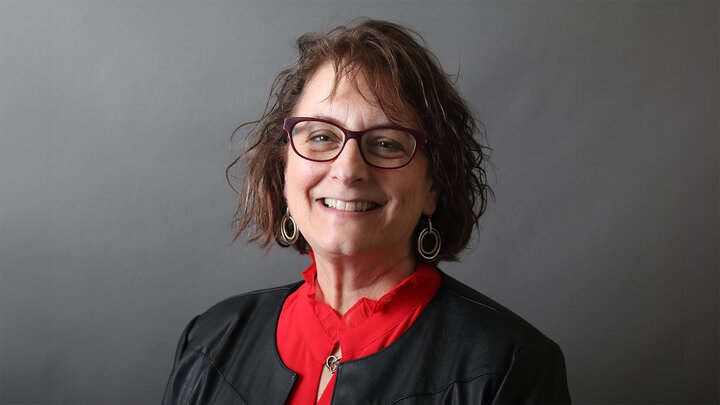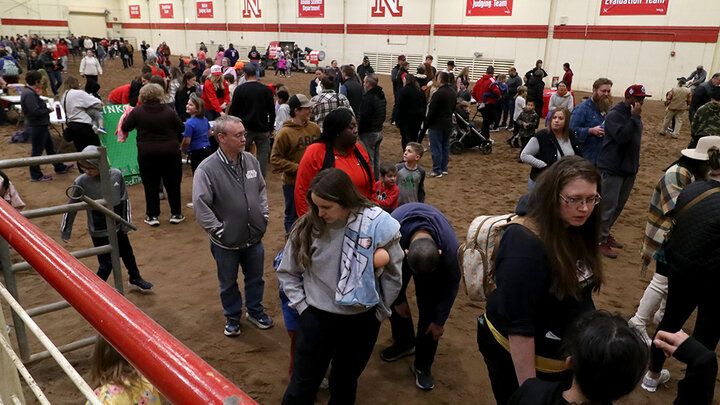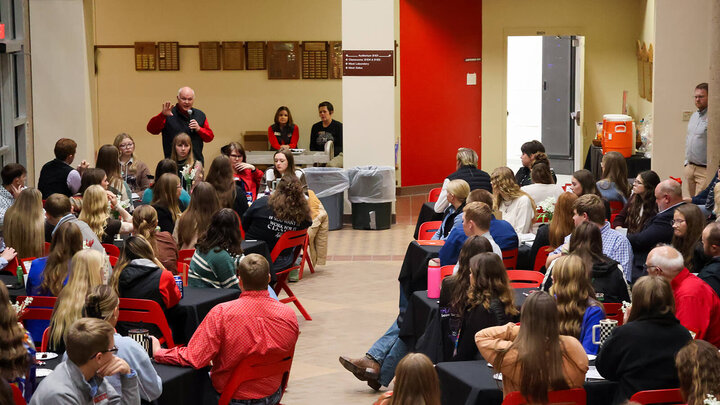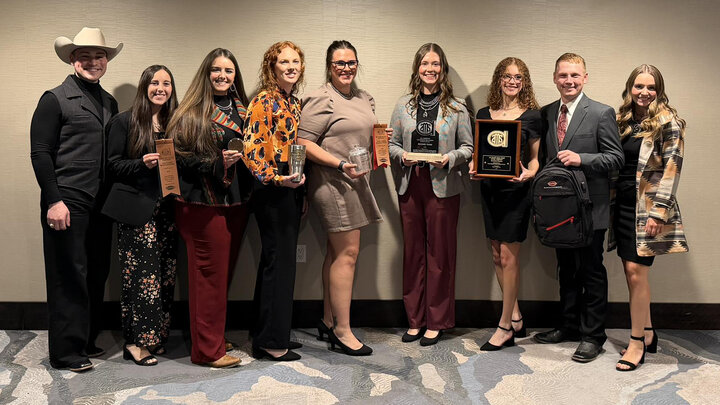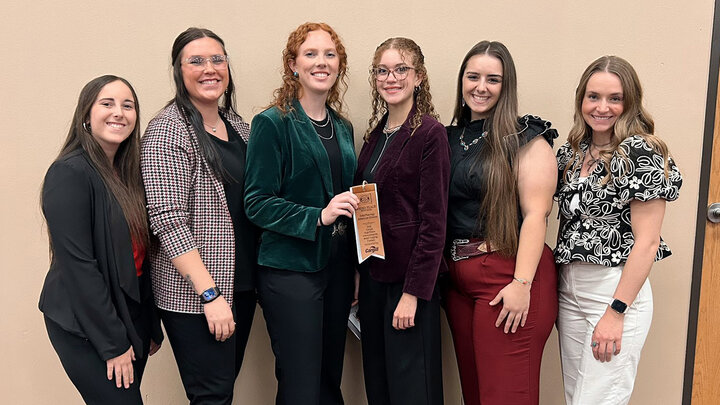Dr. Andrea Cupp, a reproductive physiologist and the Irvin T. and Wanda R. Omtvedt Professor of Animal Science at the University of Nebraska-Lincoln, has been named a 2024 Distinguished Fellow by the Society of the Study of Reproduction (SSR).
The SSR Distinguished Fellowship is one of the highest professional scientific honors awarded for outstanding contributions to the scientific discipline of reproductive biology. The honor recognizes active SSR members for their outstanding contributions to the field of reproductive biology and the Society, illustrated by sustained high-impact research, leadership, service, and mentorship.
After receiving her B.S. degree in Animal Science at Virginia Tech, she received her M.S. and Ph.D. degrees in Reproductive Endocrinology/Physiology at Nebraska. She then started her postdoctoral fellowship at the University of California-San Francisco, where she was awarded a USDA postdoctoral fellowship, which was completed at Washington State University upon her postdoctoral mentor’s relocation to develop a reproductive biology center. In 2000, she obtained an Assistant Professor position at the University of Nebraska-Lincoln. Here she rose to Full Professor in 2011 and received her endowed Omtvedt Professorship in 2015. She currently holds a courtesy appointment in OBGYN at the University of Nebraska Medical Center. She has published 135 papers, >7540 citations, an H-index of 41, and has been continuously funded by NIH and USDA since 2003 which evidences her sustained research success. She has also made a significant contribution to training the next generation of reproductive biologists mentoring six postdocs, 26 graduate students, 24 undergraduate students, and three visiting scholars to date.
Dr. Cupp has undoubtedly made a transformative and enduring impact in the field of reproductive biology throughout her career, which includes research to advance our understanding of the mechanisms of embryonic and early postnatal testis and ovarian development including the role of vascular endothelial growth factor A (VEGFA), bovine reproductive endocrinology, ovarian and corpus luteum formation, and characterization of novel bovine models of puberty, androgen excess, polycystic ovary syndrome (PCOS) and sub-fertility. Ongoing work to characterize the gene expression profiles of ovarian theca and granulosa cells during the process of differentiation and luteinization, as well as studies showing that VEGF-A(165) can be utilized to normalize the aberrant cell physiology observed in the ovarian cortex of cows with high follicular androgen levels have furthered our understanding of ovarian physiology. She has been awarded the UNL Jr. Faculty Excellence in Research Award (2004), SSR New Investigator Award (2006), American Society of Animal Science (ASAS) Young Scientist Award (2006), ASAS Physiology and Endocrinology Award (2017), Distinguished Alumni Award for College of Agriculture and Life Sciences; Virginia Tech (2017) and was inducted into Nebraska Hall of Agricultural Achievement (2022).
Regarding service to SSR, Dr. Cupp has also demonstrated outstanding and enduring leadership over the past 25 years. She was Vice President-Elect, Vice President, President, and Past President from 2017-2021 and has served on the Board of Directors, including acting as Secretary from 2013-2016. During her membership, she has also acted as a liaison to the Heritage Committee, the By-Laws Committee, the Virtual Education Committee, and the Nomination Committee. She served on the Program Committee (2003-2006), the Awards Committee (2006-2009), Board of Reviewing Editors from 2009-2013, the Public Affairs Committee (2008-2011), the Membership Committee from 2011- 2013, and served as the Newsletter Editor from 2008- 2011. She continues to serve SSR on the Publication Committee 2024-present.
SSR is the world’s leading association for supporting the scientific study of reproduction by fostering interdisciplinary communication among scientists, holding conferences, and publishing original, meritorious studies to advance the science of reproduction, fertility, and development for the benefit of humans and animals.
March 28, 2024
